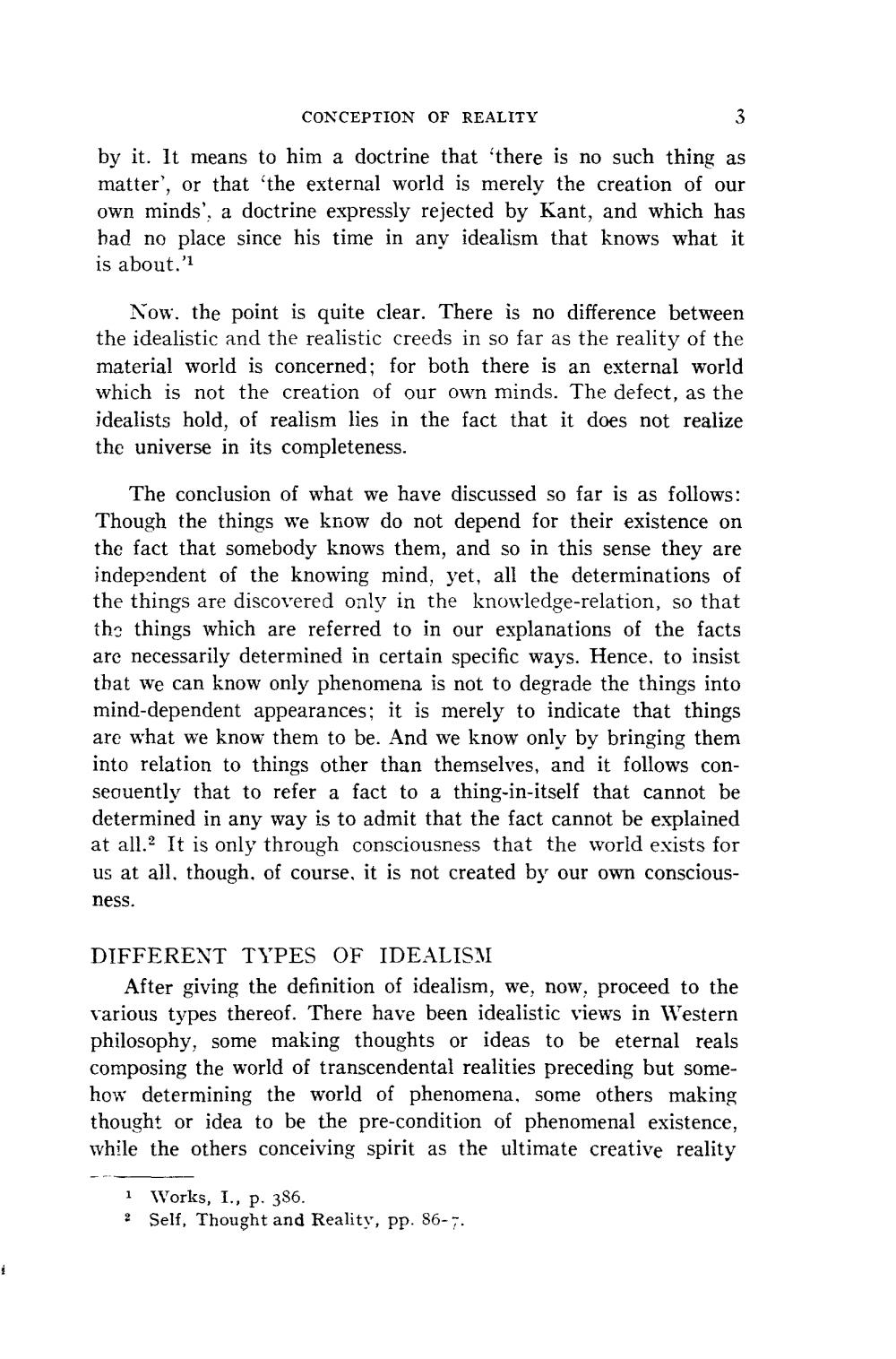________________
CONCEPTION OF REALITY
by it. It means to him a doctrine that there is no such thing as matter', or that the external world is merely the creation of our own minds', a doctrine expressly rejected by Kant, and which has had no place since his time in any idealism that knows what it is about.'1
Now, the point is quite clear. There is no difference between the idealistic and the realistic creeds in so far as the reality of the material world is concerned; for both there is an external world which is not the creation of our own minds. The defect, as the idealists hold, of realism lies in the fact that it does not realize the universe in its completeness.
The conclusion of what we have discussed so far is as follows: Though the things we know do not depend for their existence on the fact that somebody knows them, and so in this sense they are independent of the knowing mind, yet, all the determinations of the things are discovered only in the knowledge-relation, so that the things which are referred to in our explanations of the facts are necessarily determined in certain specific ways. Hence, to insist that we can know only phenomena is not to degrade the things into mind-dependent appearances; it is merely to indicate that things are what we know them to be. And we know only by bringing them into relation to things other than themselves, and it follows conseouently that to refer a fact to a thing-in-itself that cannot be determined in any way is to admit that the fact cannot be explained at all. It is only through consciousness that the world exists for us at all, though, of course, it is not created by our own consciousness.
DIFFERENT TYPES OF IDEALISM
After giving the definition of idealism, we, now, proceed to the various types thereof. There have been idealistic views in Western philosophy, some making thoughts or ideas to be eternal reals composing the world of transcendental realities preceding but somehow determining the world of phenomena, some others making thought or idea to be the pre-condition of phenomenal existence, while the others conceiving spirit as the ultimate creative reality
1 Works, I., P. 386. 2 Self, Thought and Reality, pp. 86-7.




